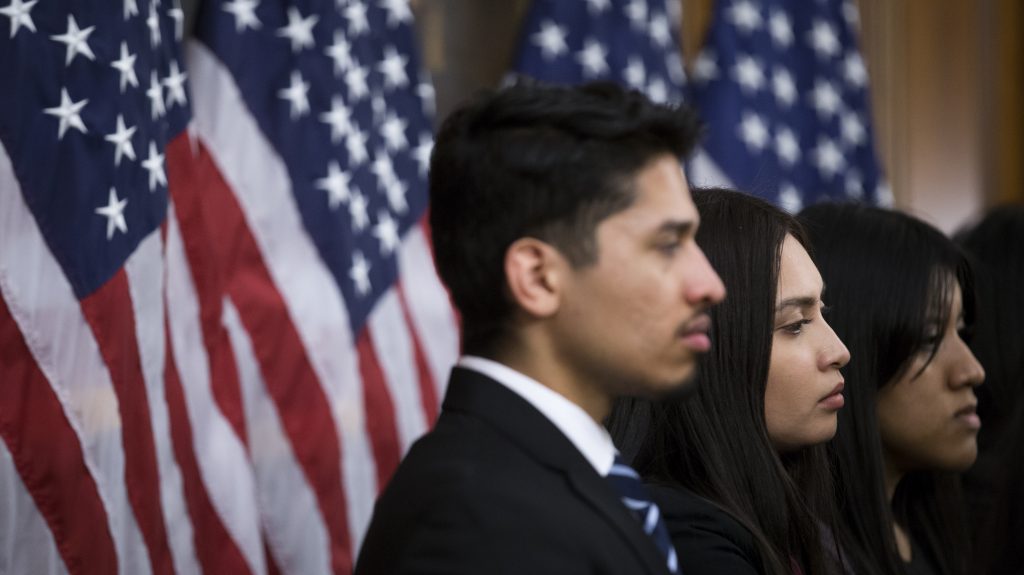Recently, I wrote a provocative column for USA Today that made a lot of sense but made almost no one happy.
In it, I revealed myself to be a NeverTrumper who was hoping the first term would be the last, and who would welcome impeachment. That part angered the right.
But then I listed 20 items — of both style and substance — that President Trump had done right in his first 20 months in office. That part angered the left.
One of the more controversial items on the list went like this. Trump was right to:
“Refocus debate on immigration reform when he ended DACA (Deferred Action for Childhood Arrivals) and tried to force Congress to confront the issue of what to do with the Dreamers.”
A week after the column ran, I was in Colorado for a speech at Colorado Mesa University. Members of the community were invited to attend, and a well-meaning but not well-informed white liberal immigration lawyer did.
During the question and answer session, the lawyer went to a microphone with a copy of the column in hand. Then he fired off three questions: What on Earth was I thinking? And since I am often identified as the most widely-read Latino columnist in America, didn’t I see how dangerous it was for me to write such a thing? And, finally, what would I say to a Dreamer to explain to him or her why I thought Trump was right to end DACA a little more than a year ago, a move that put many of their compadres at risk of deportation?
Once you brush aside the condescension of a white liberal lecturing a Mexican-American about what’s best for undocumented immigrants in the United States — most of whom are Latino, you wind up with good questions.
And here is how I answered them.
First, I said, I don’t explain anything to anyone, and that includes Dreamers. If they don’t like what I wrote, or if they have a different opinion, then they are free to write their own columns and express their own opinions. And many do write op-eds or appear on cable shows or write books or give speeches. This population of young people lacks legal status, but it certainly doesn’t lack media attention or a microphone. I don’t work for them, and it’s not essential that they always agree with me.
Second, I said, as someone who has been writing about immigration for 30 years — longer than many Dreamers have been living in this country — I would imagine that I know more about DACA and how it impacts the immigration debate than most people in the media and most Dreamers. And what I know leads me to oppose DACA, as a temporary band-aid over a bullet wound that President Obama offered instead of a permanent fix that couldn’t be yanked away on a political whim.
Moreover, given that Obama required DACA recipients to turn themselves into law enforcement, get fingerprinted and photographed, and hand over their home address where immigration agents could find not only them but also their undocumented parents and siblings, DACA was a treat but a trap. Anyone who would like to argue otherwise, please be my guest. You can start by explaining the benefits of Donald Trump now having in his possession the home addresses of nearly 700,000 Dreamers.
Third, I said, if Obama had the Constitutional right to start DACA, it’s hard to argue that Trump didn’t have the Constitutional right to end it. The immigration issue always belonged at the other end of Pennsylvania Avenue, and Congress can’t run away from it anymore. Trump killing DACA forced Congress to confront this important but thorny issue, even if lawmakers then proceeded to do so poorly. Pressure is a good thing in politics, and no good comes from the executive branch releasing the pressure on Congress to fix the immigration system by simply kicking the can down the road and extending DACA in perpetuity.
That’s pretty much what I would tell Dreamers about why Trump was right to end DACA, even if the outcome makes them feel uncomfortable and vulnerable.
And, while we’re on this topic, I would add a few more items for Dreamers. I would tell them that in politics, things aren’t always what they appear to be; that you can, in the end, only count on yourselves; that you should work with everyone but trust no one; that you should ask questions, be skeptical of those in power, and not just take what’s given to you out of desperation or a misplaced sense of party loyalty.
Trump may have ended DACA for all the wrong reasons, but that doesn’t mean it wasn’t the right thing to do. And we shouldn’t be afraid to say so.
Ruben Navarrette is a contributing editor to Angelus and a syndicated columnist with The Washington Post Writers Group and a columnist for the Daily Beast. He is a radio host, a frequent guest analyst on cable news, and member of the USA Today Board of Contributors and host of the podcast “Navarrette Nation.” Among his books are “A Darker Shade of Crimson: Odyssey of a Harvard Chicano.”
Start your day with Always Forward, our award-winning e-newsletter. Get this smart, handpicked selection of the day’s top news, analysis and opinion, delivered to your inbox. Sign up absolutely free today!

